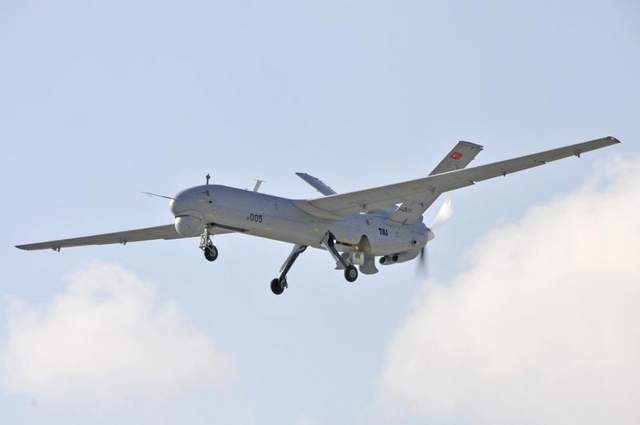Turkish national engine specialist Tusas Turkish Engine Industries (TEI), which agreed to produce prototype engines for the country’s first indigenous UAS, has entered a partnership with GE Aviation and now anticipates export sales.
TEI has created a task force among its more than 200 design engineers to build a new engine for the Anka, Turkey’s indigenously developed UAS, and some TEI engineers are working with GE Aviation’s engine designers in Turkey.
The programme became more important when the expected engine provider became bankrupt and was bought by a company that would not provide the engines.
TEI officials said foreign sales could be possible within two years after the engine passes performance tests with the Anka.
“I think we may even sell the Turkish engine to the US to meet their engine needs in this category,” Mahmut Aksit, TEI’s General Manager, told reporters.
A procurement official said engine exports may not be limited to the US.
“About 20 countries are designing or developing their own UAS. An engine to power some of those may create a large market for TEI,” the official said. “Even if TEI wins contracts to power a few of those emerging UAS, there will be a significant amount of business.”
Turkey’s procurement agency, the Undersecretariat for Defence Industries (SSM), signed in December 2012 a contract with TEI to produce five prototype engines for the Anka. The design, production and certification tests would take four years, according to the contract.
The Anka is a medium-altitude, long-endurance (MALE) drone. Such UAS usually can operate for 24 hours at an altitude of 10,000 feet. Anka, meaning Phoenix, is the first MALE-type UAV to be produced by TAI. One of the prototypes crashed during a test flight in September but several other flight tests have been carried out successfully.
A version dubbed Anka+ calls for a rocket attached to its body and sensors.
Late last year, the Turkish government signed up with aerospace specialist Tusas Turkish Aerospace Industries (TAI) for an order of 10 Ankas and ground stations. Under the deal, the first serial production deliveries will take place between 2016 and 2018.
TEI wants to finish its engine work to fit into TAI’s production timetable. TEI’s engineers, apart from designing a new engine, are modifying Anka’s Centurion engine.
Chinese group Avic International’s acquisition last year of Thielert, a bankrupt German maker of diesel engines for aircraft, threatened the Anka programme because Thielert’s Centurion engine would have powered the aircraft. TAI had originally ordered the Centurion for the 10 Ankas it will produce.
Avic said in August that it was merging Thielert into its Continental Motors division and was giving up military business. Deliveries had stopped, the state-run Chinese company announced.
Thielert was supplying engines for other aircraft, including a US Army version of the General Atomics Predator. TEI hopes its engine will replace the Centurion. But an Ankara-based defense specialist was cautious.
“TEI has said since 2005 that it would build an indigenous engine for the indigenous Turkish drone. I hope this time they really make it,” he said. “But they are right about the export potential. The government can use its regional political clout to help TEI win contracts. But first they must make the engine.”
Source: Defense News

